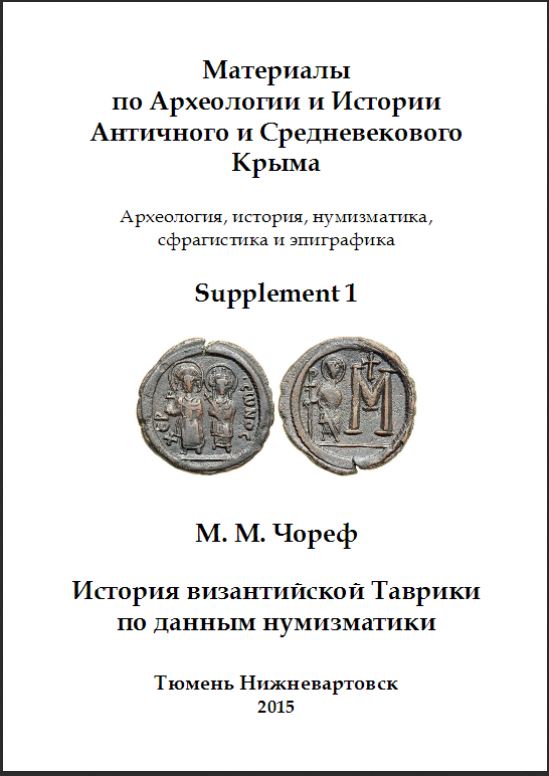
We kindly inform you that, as long as the subject affiliation of our 300.000+ articles is in progress, you might get unsufficient or no results on your third level or second level search. In this case, please broaden your search criteria.

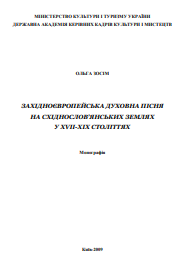
Монографію присвячено малодослідженій у сучасній музичній науці проблемі західноєвропейських впливів у східнослов’янській (і, зокрема, українській) духовній пісенності. У центрі уваги автора – жанр духовної пісні, що розглядається у широкому контексті як явище художньої та церковної культури. Значну увагу приділено літургічному чиннику як одному з провідних у процесі створення східнослов’янського духовно-пісенного репертуару. Багато явищ церковної музичної культури набули нової інтерпретації. Вагому частку становить новий текстовий та музичний матеріал з історії східнослов’янської духовної пісенності. Як підсумок багаторічної роботи джерелознавчого та текстологічного характеру у монографії подано створений на основі українських, білоруських та російських рукописних пісенників XVII-XIX століть системний інципітний каталог західноєвропейських духовних пісень, що увійшли до східнослов’янського духовно-пісенного репертуару. Для музикознавців, культурологів, філологів – мовознавців та літературознавців, літургістів, а також для широкого кола читачів, що цікавляться українською культурою XVII–XIX століть.
More...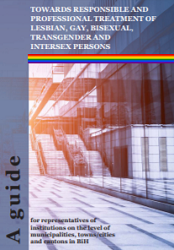
Dear professionals, If you have never had a professional encounter with lesbian, gay, bisexual, transgender or intersex (LGBTI) persons, then this guide is for you. Think about it! If, in your entire career, you have never dealt with an LGBTI person, could it be that you just failed to recognise one? Consider this example. According to census results from 2013, about 80,000 citizens of the Federation of BiH do not belong to any of the three constituent peoples. They have professed to be members of national minorities, Bosnians and/or Herzegovinians, members of other ethnic identities, or simply refused to profess any ethnic affiliation. With this in mind, have you ever had a professional encounter with a Roma person, Jews, Albanians or Montenegrins? Or with people who are Catholics? Around 17,000 people in Sarajevo Canton stated they were Catholics during the census. Surely, you know members of these groups and communities. So how come you do not know any LGBTI persons, or know very few of them, when LGBTI people make up anywhere from 3 to 12 percent of the population in countries around the world. In Sarajevo Canton, 10 percent of the population amounts to more than 40,000 people – is it really possible that you have never had a single LGBTI person ask for your services? It is possible. It is possible in a conservative, close-minded society that openly denounces different sexual orientations, gender identities or sexual characteristics and expertly sweeps domestic violence under the carpet in the name of honour and good reputation among neighbours and family members. It is this kind of society that continues to deny the existence of LGBTI persons. Look around you in public transportation. You will perhaps see around 20 people. According to census results, 16 of them are probably Bosniaks, one person is a Croat or a Serb, while one to two people do not profess any ethnic affiliation. You know at least one person belonging to each of these categories, and yet you will completely disregard the fact that one to two people are members of the LGBTI community. Of course, none of this matters when you use public transportation, nor should it matter. However, there are occasions, especially when it comes to the work of institutions – municipalities, cities/towns and cantons,1 when sexual orientation, gender identity and sexual characteristics become very important. When developing public policies, programs, strategies, action plans, or providing services and carrying out their duties, these institutions should keep in mind that a significant number of people in our society are LGBTI persons who have specific needs and problems. Dear professionals, integrating LGBTI persons in all spheres of public life and recognising their needs is very important if these citizens are to fully enjoy their indispensible, fundamental human rights. Their existence in our society should not be ignored, concealed behind the veil of tradition, hypocritical values and conservative attitudes that negate the needs of these persons. Let us change Bosnia and Herzegovina together. Let us work in our municipalities, towns/cities and cantons to ensure equality of all citizens. We hope that this guide, that was created within the project establishing institutional network for LGBTI persons in Canton Sarajevo, implemented by Sarajevo Open Centre and supported by the USAID’s Marginalized Populations Support Activity in Bosnia and Herzegovina, will contribute to this aim.
More...
The publication is an outcome of activity of International Network C.A.L.M.A.Z, which deals with interdisciplinary cooperation in PE and geography. The authors are representatives of university departments in the Czech Republic, Slovenia, and Denmark. The publication aims to present how the participating countries approach, in their curricula, the cooperation in PE and geography. The cooperation is viewed from two perspectives – comparison of curricular documents help ascertain how this cooperation is embedded at the theoretical level. The questionnaire survey with teachers represents a probe into the realization form of the curriculum. In the conclusion, possible approaches to integration are discussed, and practical examples are presented.
More...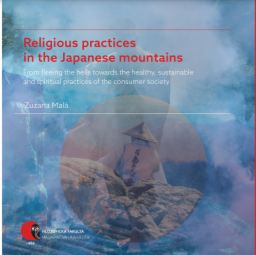
The study examines the Japanese mountains as places of religious practices. The author looks at both the historical and the present-day religious practices enacted in the mountains and asks how the logic of the market has shaped them. By looking through the historical development of religious practices in the mountainous locality of Tateyama, the first three chapters offer an understanding of the relationship between mountains and notions of the afterlife. The case of Tateyama, a popular pilgrimage site during the Edo period, provides an insight into the pilgrimage place and its mountain cult taking into account the economic aspects in the maintenance of the cult. Drawing on insights gained through field research in the Japanese mountains of Tateyama and Dewa Sanzan, the author explores the present-day re-enactments and sustenance of religious practices and their intersection with the cultural heritage concept. These observations have provided a useful perspective on adjustments between providers of religious practices and participants. Although seen as marginal practices, austerities such as taki gyō and the complexity of qualities associated with them are introduced in the last chapter as examples of the creative sustenance of present-day ascetic practices.
More...
In this book an interpretation of two Indo-European mythological themes within their complex context is presented. Considered are especially historical and socio-cognitive aspects of their background. By means of this approach an innovative interpretation of an otherwise traditional mythological structure is proposed as well as a new one introduced. In the first part of the book the matter of well-known Indo-European creation myth is discussed. It is hypothetically concluded that Proto-Indo-European cultural area originated in prehistoric Cargo Cult. Certain motives and themes of Indo-European creation myth are interpreted as possible semantic relics of Pre-Proto-Indo-European Cargo Cult ideology. In the second part an attempt to present the brand new Indo-European mythological structure, so called witch-hunting myth, is made. Analysed are various local manifestations of narrative dealing with the conflict of elites with the demonic army led by a female witch. A basic sujet pattern is identified and then interpreted as an outcome of archaic Indo-European societies’ social and gender setting.
More...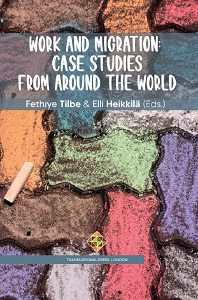
The purpose of this edited book is to look at work and migration from multiple viewpoints and illuminate challenges faced by immigrants in the labour markets around the world. It takes an approach that listens to the voices of different migrant groups in different countries, based mostly on qualitative research. In addition to the main themes of discussion centred on labour markets, this book also makes reference to a wide range of discussion topics which often intersect with employment, labour markets and the work experience of migrants. These include themes such as migrant integration, remittance transfers, relations established and maintained with home countries, legal and institutional arrangements and policy making processes in the host countries, through the concepts of employment and work. The chapters highlight immigrants’ experiences both theoretically and empirically in the contributions around the world. “This book, which includes the experiences of specific groups like qualified, unskilled, and female migrants, makes reference to a wide range of discussion topics such as migrant integration, remittance transfers, relations established and maintained with home countries, legal and institutional arrangements and policy making processes in the host countries, through the concepts of employment and work.”
More...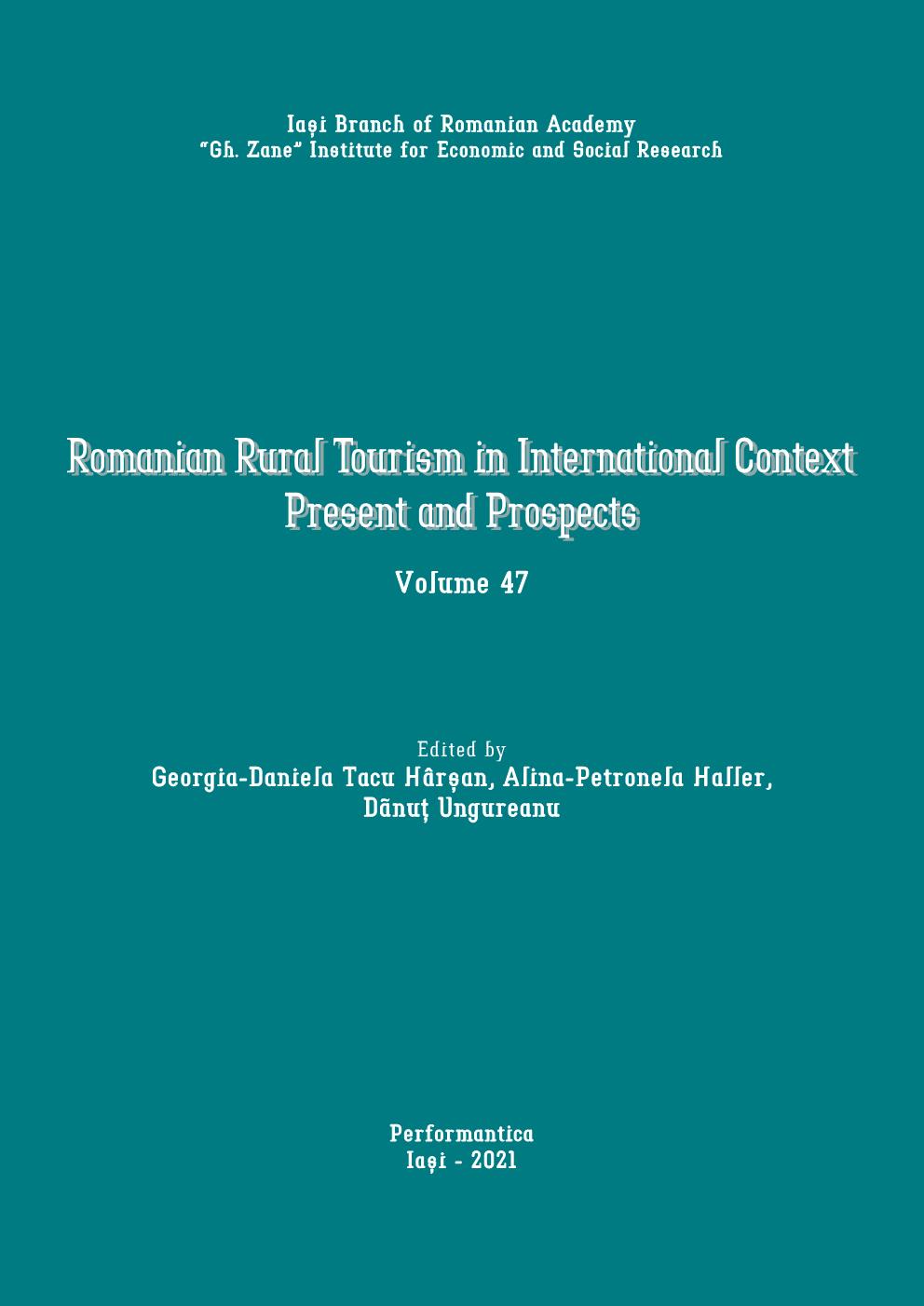
The series ,,Romanian Rural Tourism in International Context. Present and Prospects" explore some of the main concerns of both theorists and practitioners on the following topics: rural tourism, agritourism, ecotourism, tourism in the context of sustainable development at national, regional, and global level, traditionalism vs modernism in tourism, national and regional strategies for rural tourism development and marketing, e-tourism, etc. The series of ,,Romanian Rural Tourism in International Context. Present and Prospects" traditionally approaches the tourism phenomenon from a multidisciplinary perspective: economics, anthropology, ethnography, low, etc.
More...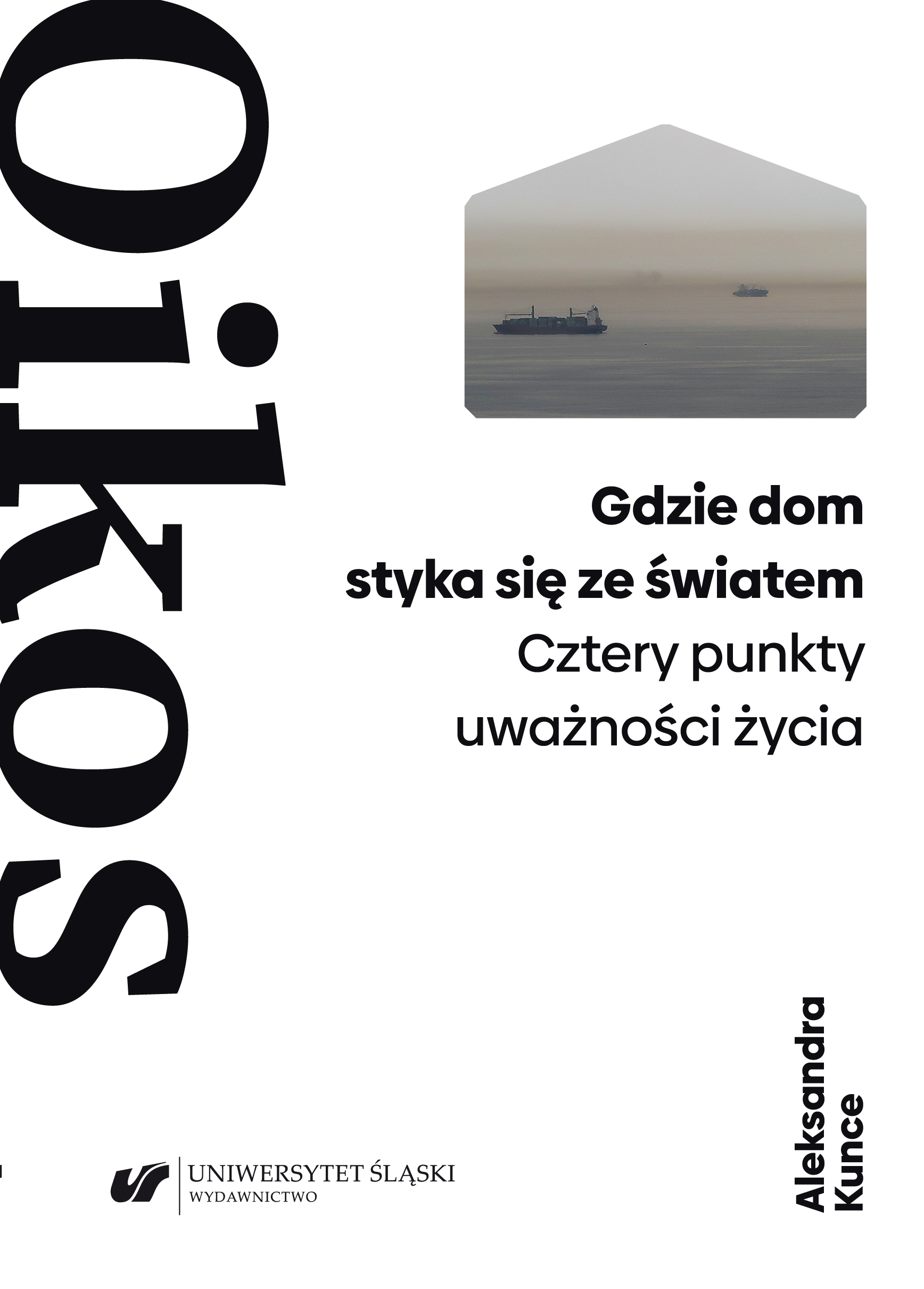
A small thing: four oikological essays, preceded by an introductory word, on our entanglement in the “home-world.” If we were to take the title as the question, “Where does the home meet the world?”, the answer would be: “In the points that require our attentiveness of life.” Attentiveness requires discipline and precision, and it is not only about precision in actions and observations, but about our being at home and in the world, in the changing rhythms of being rooted and wandering. Being mindful guides us towards a place, and concern extends over time to finally lead us home. Home is a peculiar time(lessness); it is a dynamically understood and open place that allows us to direct our desire to what is distant, inconceivable, and unimaginable. When we say ‘home,’ we do not mean a familiar and closed stronghold but a home rooted in the idea of the cosmos. It corresponds also to the idea of Heimat. The four points of contact between home and the world are found through (1) the humanities, (2) man, (3) friendship with the place, and (4) the university. The four oikological essays look into the entanglements, overlaps, but also the truest lack of the indeterminate at the boundary of home, around the threshold that symbolically not only testifies to the boundary in rituals, but delineates the space of attentiveness. At these points where home meets the world, our entanglement in the "home-world" is brought out.
More...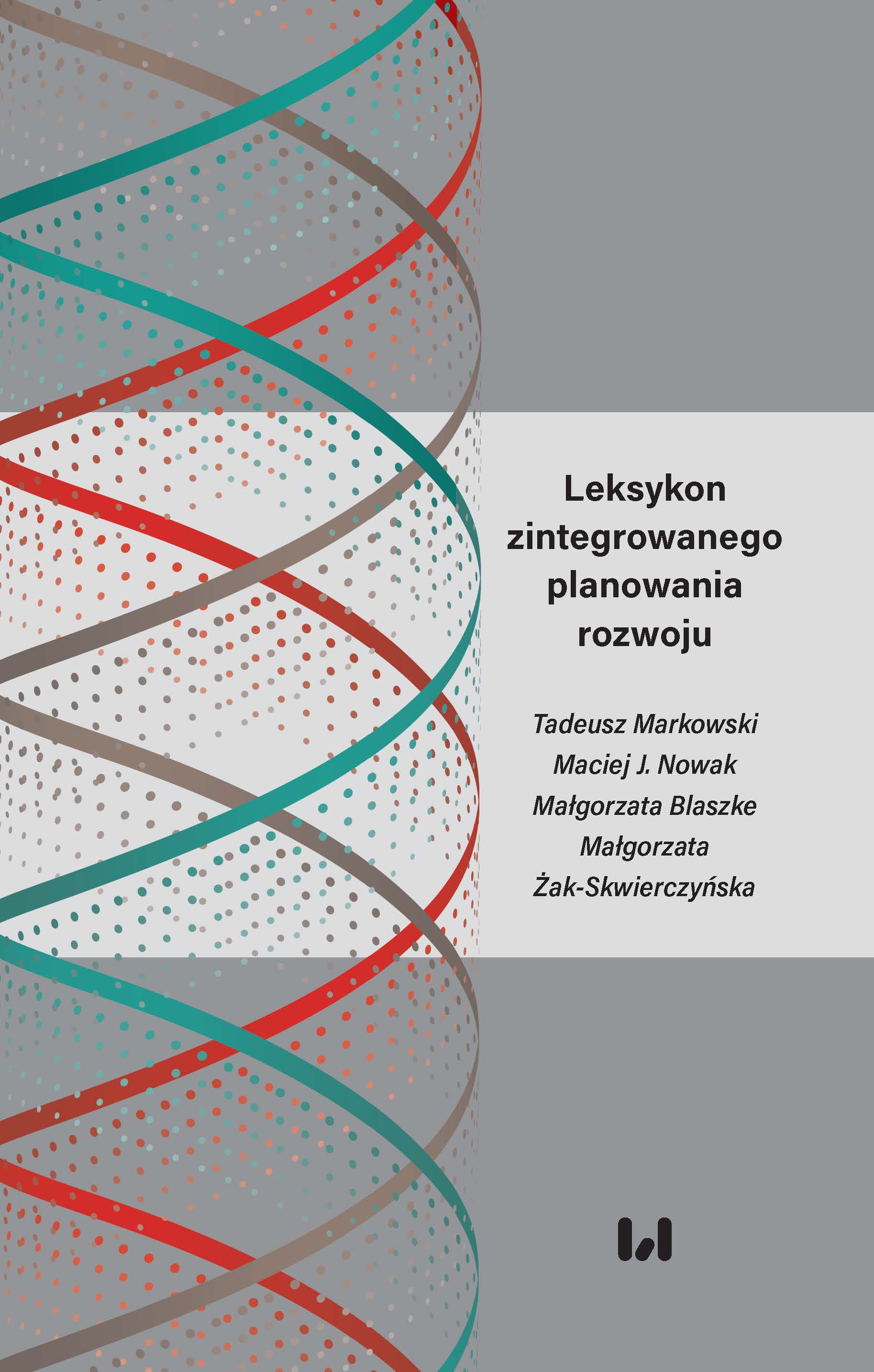
The issue of stimulating socio-economic development in an open market economy requires an increasingly complex and, at the same time, holistic approach to the increasingly complex planning and decision-making process. The sphere of public activities related to the development of modern democratic states is undergoing dynamic changes under the influence of complex global political, social, economic, and environmental changes. This results in hindered communication not only between scientists but also between practitioners and stakeholders of contemporary politics. This fact significantly delays the building of a consensus around the necessary institutional reforms, the development of modern planning concepts, and the creation of an appropriate regulatory system. A particularly important conceptual sphere for polish regional and spatial policy - requiring ordering and clarification of several concepts - is the sphere of integrated development planning.The lexicon is the first study available on the market aimed at partially organizing the terminology related to integrated development planning. It distinguishes over a hundred terms that raise certain interpretation doubts and proposes ways of understanding them referring to the latest research in the field of the theory of regional and local development. The formula of the lexicon assumes a synthetic presentation of individual terms, with the majority of issues being subject to further supplementation. The lexicon is aimed to help not only in the basic understanding of specific terms but also with the basic principles and challenges of contemporary development policy and planning pragmatics.The lexicon was developed by a multi-author and multidisciplinary team. It contains a broad description of terms and indicates the basic supplementary literature for the described term. It is a kind of compendium of knowledge necessary for planning practice and communication drawing on the experience of many disciplines, urban planning, architecture, regional studies, city economics, sociology, political science, and law.
More...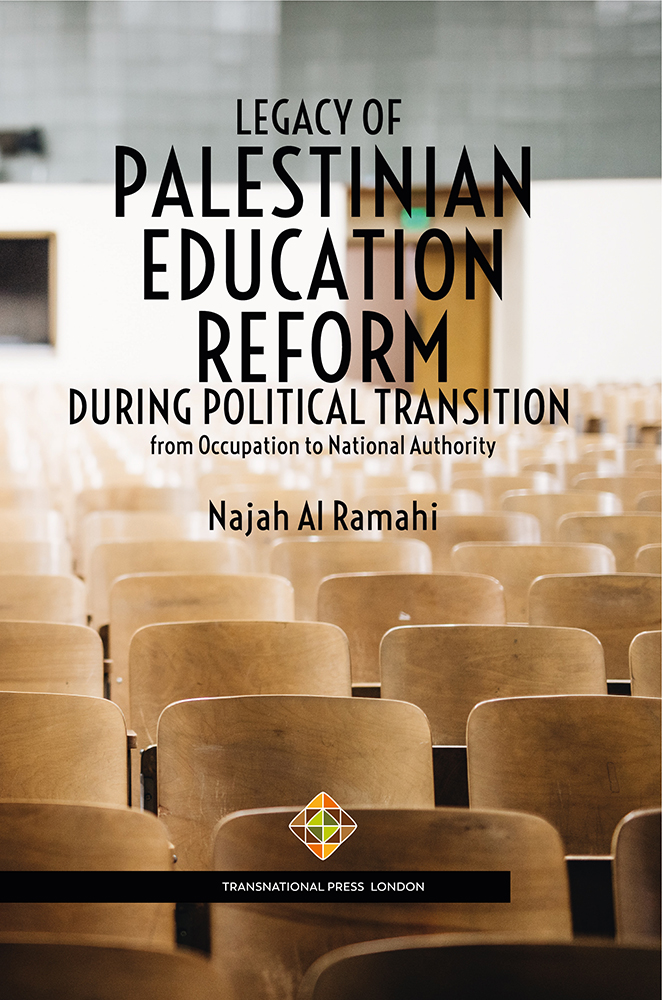
This book makes a major contribution to educational research and literature in exploring process of educational reform in the period of Political transition in Palestine. It is aimed at describing the journey of changing Palestinian primary education and the legacy of establishing the first national education system in Palestine as well as the introduction of a number of educational reforms. The introduction of new educational reforms was urgently needed in order to achieve quality education in Palestinian schools. This was particularly crucial after the prolonged military occupation, which left the education system in a perilous situation and lowered education achievements for a whole generation. The book explores an attempt to retrieve Palestinian education after a prolonged period of military occupation and to rescue the education system from collapsing. It tells the story of reshaping national identity and reviving Palestinian heritage and culture.Therefore, this book is the first one of its kind that captures the story of education reform against a background of struggle that should not be forgotten. It documents a unique period of time in Palestinian history and highlights the beginning of an education system in Palestinians’ hands. Moreover, this book presents real life stories from Palestinian schools and shows the real struggle over power and control in the education system in Palestine.
More...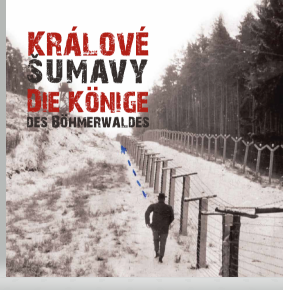
The twenty-panel exhibition recalls the activities of couriers and smugglers who, in the western Šumava region, risked their lives to help Czechoslovak citizens on their way to the free world. The Iron Curtain: post-war Europe was divided by the Iron Curtain. Czechs running for freedom tried to overcome this guarded space by various means. The luckier ones succeeded, others were detained or killed. What did the border guard look like? What is the balance sheet of the iron curtain? Detention and investigative methods: the State Security became a powerful support of the communist regime, which participated in mass lawlessness, persecution and repression. She followed real opponents of the regime, but also produced them herself. What methods did she use? Did she treat women better than men? Prison: the StB secret prison in Wintrová Street in Prague was used to extract intelligence from arrested couriers and their own associates.
More...
Sumarul numărului 3/4 al revistei noastre inaugurează o serie tematică inspirată de proiectul științific și formativ al Centrului de studii comparate central- și sud-est-europene, care se derulează pe o durată de trei ani (1999-2001): Identități solidare, identități divergente. Dacă am început prin a dezbate și investiga ideea de polonitate (slujiți și de analiza unor opere majore ale acestei culturi) e pentru că spiritul polonez ilustrează Europa Centrală în ceea ce are ea, poate, mai dramatic. Dar și pentru că modelul înnoitor al Poloniei central-europene și-a dovedit eficacitatea în ultimele decenii. începem cu Polonia și fiindcă Fundația noastră a beneficiat de întâlniri cu personaje notabile ale Poloniei de azi. însă și pentru că am fost prezenți nu de puține ori, invitați sau gazde, la importante reuniuni culturale și științifice polono-române.
More...
This book has been prepared as the third installment in the book series titled “Women in a Global World III.” All research articles that constitute this book are interdisciplinary and international comparative studies. Researchers from around the world presented their diverse perspectives on women-themed topics such as “Women’s Empowerment, Women’s Challenges in Society, Women and Literature.” The book provides a thought-provoking and informative account of the experiences and travails of women around the world. It serves as a reminder of the intrinsic value of women’s voices and stories, and advocates for their elevation to the forefront of contemporary social discourse.
More...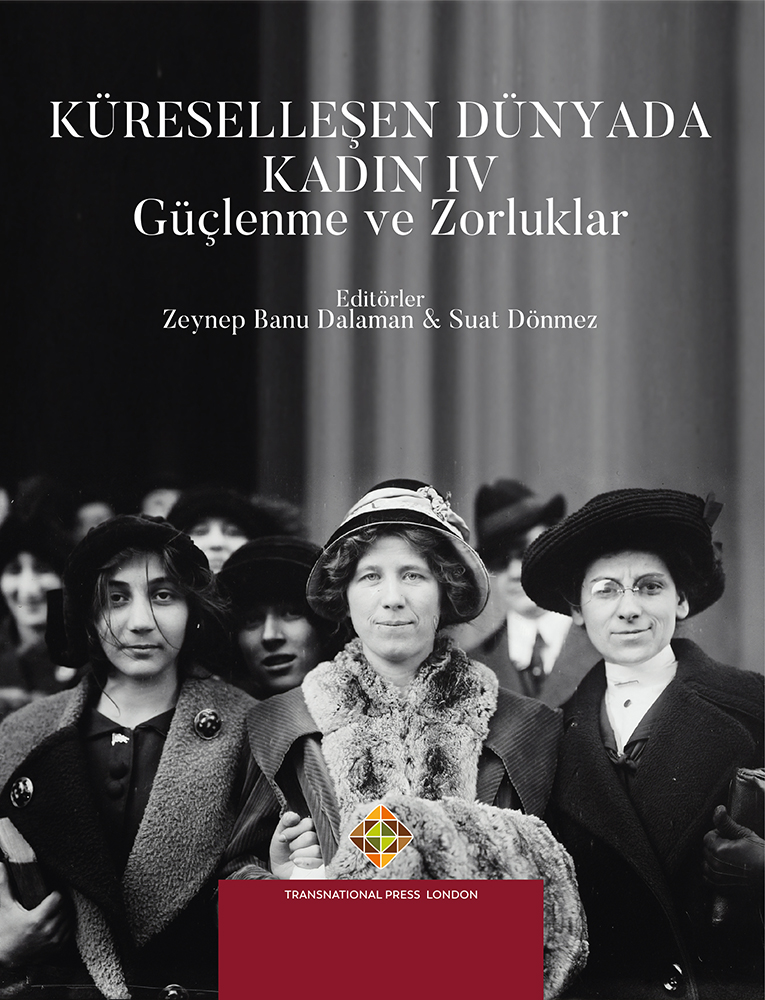
The aim of this research is to discuss the key elements of the gender equality plan (GEP) development process in the universities and other research institutions, based on the experiences of the Gender Equality Plan preparation process at Yaşar University within the scope of the Horizon 2020 project titled “Linking Research and Innovation for Gender Equality (CALIPER)” from the perspective of the effects of the European Union financial supports on the institutional change process. The scope of the research includes the analysis process of the data obtained from the semi-structured interviews, focus groups and surveys conducted within the scope of internal and external current situation analysis, using qualitative and quantitative research methods. Through the research, main gaps in institutional processes, practices and procedures related to gender equality were identified under six key areas: human resources, institutional governance, research, teaching, institutional communication and gender-based harassment. The result of the research highlights the importance of evaluating the institutional factors and procedures with a multidimensional perspective in the planning and implementation of the institutional change process with respect to gender equality.
More...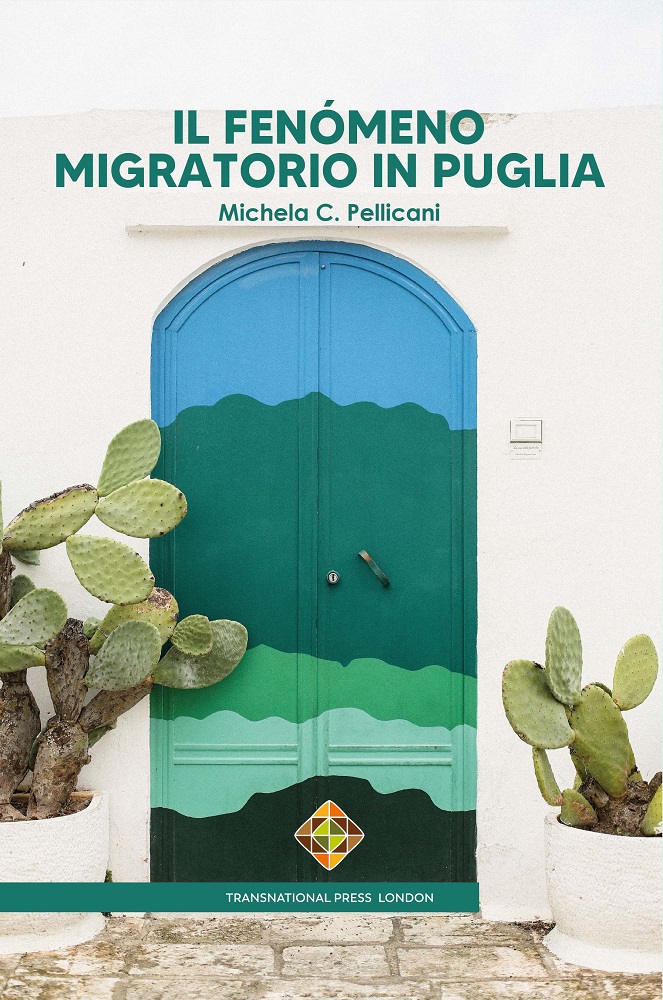
"Non migrano i più deboli, non solcano i mari lasciando dietro di sé la Patria e la famiglia, i più pavidi, ma, nella grande generalità, coloro per i quali la vita è battaglia e l’animo è abbastanza forte per combatterla anche nelle più difficili condizioni."
More...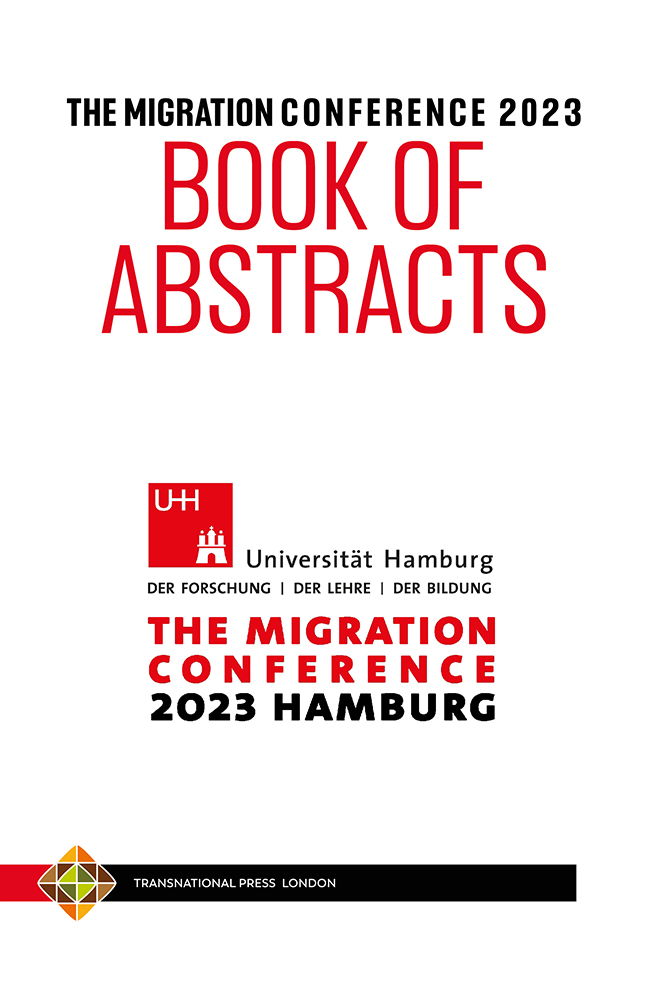
The Migration Conference 2023 Book of Abstracts includes about 400 abstracts of papers presented at the Conference from 23 to 26 August 2023. The Migration Conference 2023 is hosted by the Faculty of Law at Hamburg University in Germany. Details of the conference programme and the links to the online sessions can be inspected here. www.migrationconference.net | @migrationevent | fb.me/MigrationConference | Email: migrationscholar@gmail.com
More...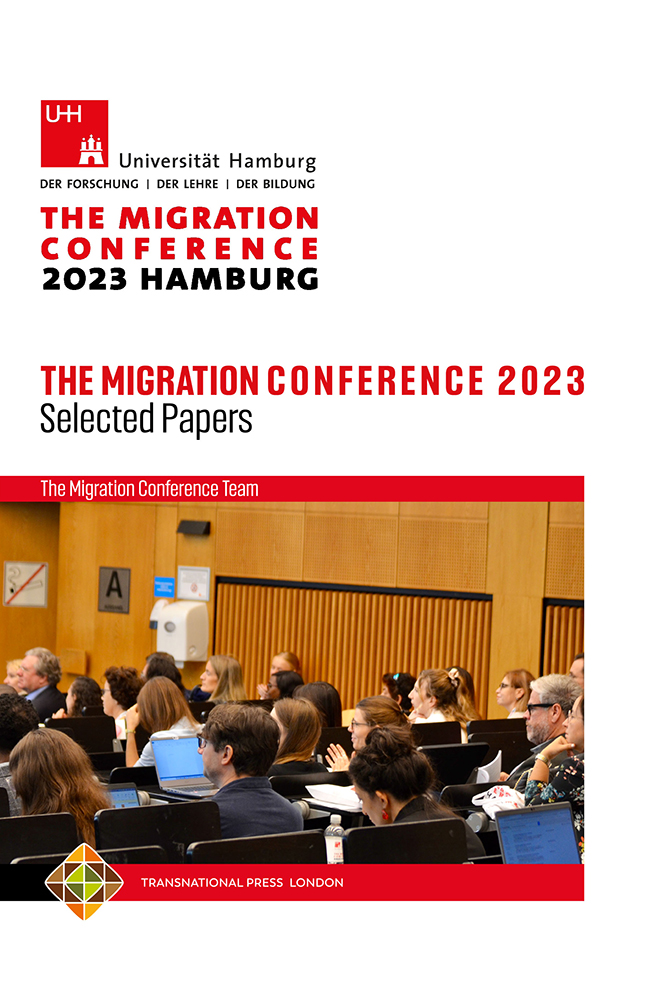
The Migration Conference 2023 Selected Papers includes short papers from several tracks that were included in the TMC 2023 Hamburg programme. Migration Conferences are annual scholarly gatherings accommodating debates about migration, migrants, refugees, asylum seekers, integration, diasporas and all other relevant topics from various social science disciplines while also hosting debates involving policy makers, media and third sector representatives. The Migration Conference 2023 was hosted by the Faculty of Law at Hamburg University in Germany. Details of the conference programme and the links to the online sessions can be inspected here. www.migrationconference.net | @migrationevent | fb.me/MigrationConference | Email: migrationscholar@gmail.com
More...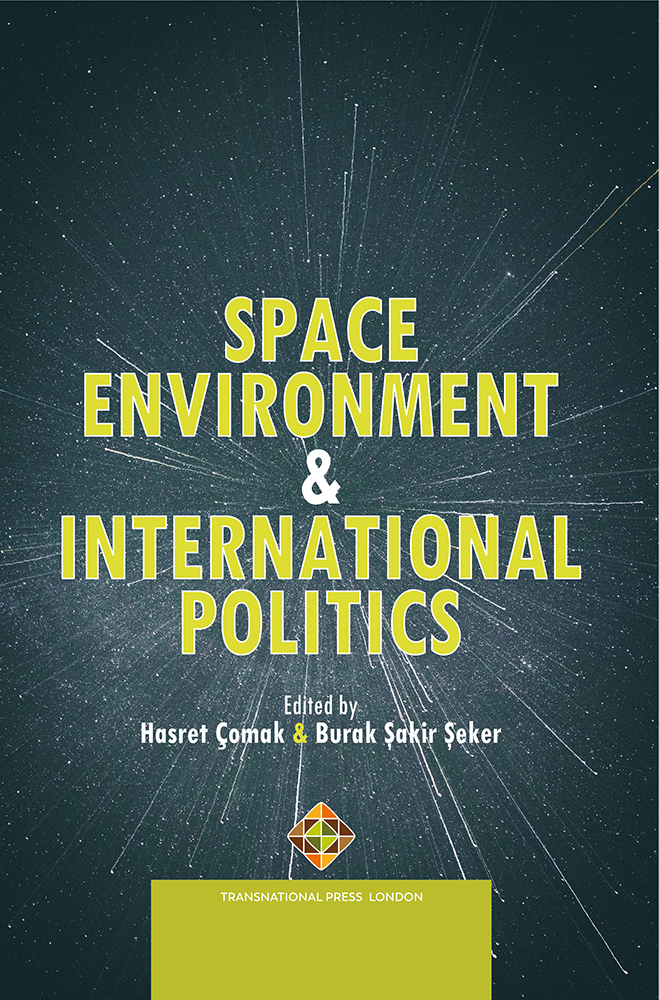
Embark on an enlightening journey through the vast expanse of space law and policy with "Space Environment and International Politics". Authored by experts in the field, this comprehensive volume explores the intricacies of international space law, from the development of legal frameworks to the challenges posed by space debris and the regulation of space activities. Delving into the space policies of international organizations such as the United Nations, NATO, and the European Space Agency, the book offers invaluable insights into efforts to ensure outer space security and foster sustainable space politics. Examining key issues surrounding space security and warfare, including cyber security threats and the militarization of space, the authors provide a nuanced understanding of the evolving geopolitical dynamics. With its meticulous research, insightful analysis, and balanced discussions, this book is an indispensable resource for policymakers, scholars, and practitioners navigating the complex terrain of international space law and politics. Whether you're a seasoned professional or an aspiring student, "Space Environment and International Politics" offers a captivating glimpse into the legal, political, and technological dimensions of politics beyond Earth.
More...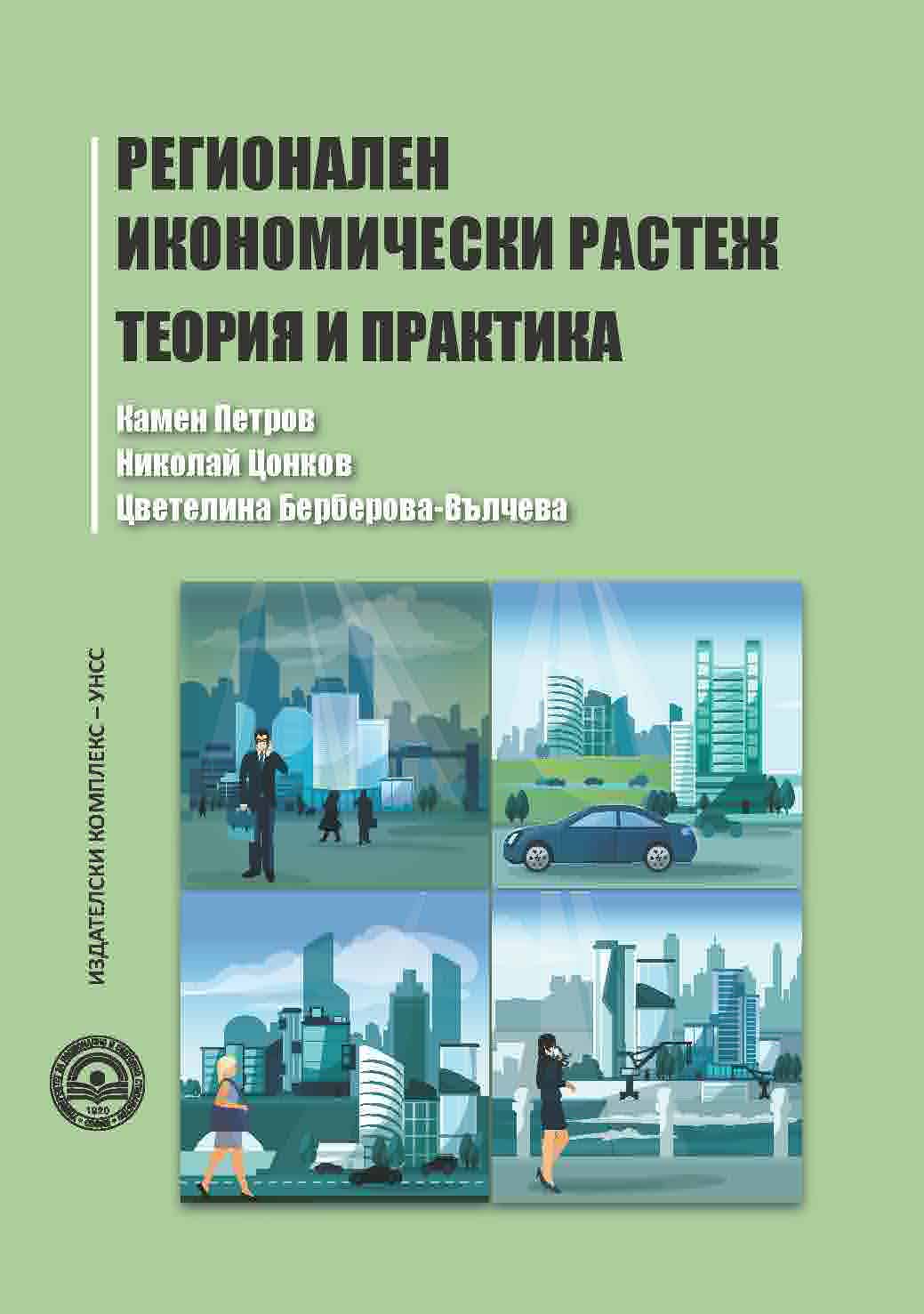
Modeling regional economic development on the territory of a country and individual regions and peripheral spaces is undoubtedly a complex process. It is carried out using one or more key indicators or is a consequence of political, economic, administrative, and cultural processes taking place in the country. In this direction, the regional toolkit is called upon to illustrate processes and phenomena in the management of territorial development by business and public management. Most research in this area has involved the analysis of individual factors that influence the dynamics of problems over a time horizon. In this regard, the study examines some of the aspects that can lead to imbalances in the development of territorial units or to a change in the pattern of administrative-territorial division that has significant importance for state governance. Along with this, a new approach is needed to derive a new framework for the structure of the regional economy. This implies that the focus of regional economic growth has its distinctive features of geographical location, spatial localization, and regional development management. Thus, regional economic growth does not even exhaust the territorial aspect of a site" such as "location, size, shape, topography, hydrography, climate, population, economy, roads and communications, and so on, but also relies on each territorial unit to be characterized in a larger passport effect. This process of regional economic flexibility of the territory gives us the new spatial form of the settlement structure, which also determines the way of life of the settlement and its role in the national economy. The complex nature of the regions and the presence of many separate systems make their linear mathematical programming impossible. For this reason, two regions that are completely identical in terms of quantitative characteristics, with similar production performance, age structure, and employment, may have opposite development trends. Careful selection of indicators for analysis will lead to correct forecasting of future development of individual regions. This brings regional development management to the fore. At the heart of regional development is the proper planning of activities that lead to regional economic growth. Monitoring this process involves the selection of adequate indicators. This monograph aims to examine the different aspects of regional economic growth, which is fundamental for the territorial development of regions. The book provides several examples of regional development in Bulgaria and the changes needed to achieve high regional economic growth. The present study in the field of regional economic growth is a combination of knowledge presentation and accumulated practice in Bulgaria and worldwide.
More...